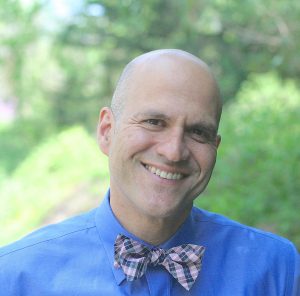Podcast: Play in new window | Download

It’s not a secret, the broken healthcare system is exquisitely tuned to react after patients get sick. For the most part, profits are made after we FAIL patients. And it hurts all of the caregivers who face the daily internal conflict of doing what is right for the patient or doing what is right for the business. But there are a few who are positioned differently. When the strategy and business are unconflicted they’re not worried about demand destruction and leakage but are instead focused on prevention and true care management.
It all begins with prioritizing and properly aligning primary care. A group of 100 adult primary care physicians can influence $1 billion in healthcare spend. This is the source of potential power and change in a value-based world, where health will improve for patients and their providers while costs are decreased. Aledade is such a place – by allowing providers to remain independent and unfettered by the constraints of fee for service, Aledade is blazing the path toward true health value.
Episode Bookmarks:
03:30 Comparison of Healthcare Spending ($6M per minute) to Niagara Falls (6M cubic feet per minute)
04:55 Aledade’s success in short lifespan of company (now at 800 practice partnerships with $360 million in healthcare cost savings)
06:05 The misalignment of incentives creating a perverse incentive for poor outcomes (e.g. profitability of treatments following a stroke)
06:45 Dr. Mostashari spending his career trying to find answers to the question, “How do we save the most lives?”
07:20 Adoption of electronic health records (“We succeeded in the battle, but we lost the war.”)
07:45 Provider workflow redesign and optimization (Regional Extension Centers)
08:25 “How can we create incentives so that private profit creates public good?”
09:30 “The Paradox of Primary Care Physician Leadership” (the influence of primary care on downstream healthcare spend)
11:30 Consolidation of primary care by Optum and private equity firms
12:00 The resiliency of independent primary care practices
12:30 “Independent practices can do what they believe is in the patients’ best interest, without worrying that they’re obligation to the patient conflicts with their obligation to the corporation.”
13:00 Data shows remarkably little change in hospital employment of PCPs, thereby showing resilience in the primary care market
15:00 Movements are led by effective storytelling and these stories can revitalize communities of people
17:00 Primary care heroes during COVID-19, and how society neglected them by failures in supply chains, testing, and vaccines
18:40 Aledade’s support of primary care practices during the pandemic
20:00 “It is remarkable what happens when you do the right thing.”
22:00 Dr. Mostashari’s terror in seeing early ER utilization data in knowing that a pandemic was coming (before the media was covering it)
23:00 Implementation of telehealth, finding PPE, and securing loans for practices in early stages of pandemic
23:25 “The idea of practices going out of business during the pandemic highlights the insanity of fee-for-service payment for primary care.”
24:00 The lessons of COVID-19: 1) Healthcare can change, 2) Primary care doesn’t have to be an in-person visit, 3) Capitation in primary care is preferrable to fee-for-service
25:40 “Primary care is about the relationship between a practice and patient — it’s not about the 99213 visit.”
27:30 Dr. Mostashari addresses recent delays by CMMI in new APMs and what we should expect in future health policy
28:30 Scaling the models that work is the job of good health policy. (MSSP compared to CMMI programs)
29:00 The ACO Investment Model (AIM) program was successful and a model for future provider and patient incentive programs
30:30 CMMI delays should not be considered as a question to the direction of value-based models.
32:00 The progress of the ONC in standardizing health information
32:30 The sharing of Admission, discharge, transfer (ADT) notifications as a requirement for hospital participation in the Medicare program
33:00 The need for policy clarity to support improved interoperability and data sharing
35:30 Dr. Mostashari discusses the evidence for the benefits of Medicare Advantage plans
37:00 Could profits for Medicare Advantage plans be lower and still achieve same level of benefit in value-based care?
37:45 The focus should be moving practice panels to risk in order to ensure value-based care standardization
39:00 The murder of George Floyd as a reckoning for society (“We can no longer be bystanders.”)
40:00 Health equity as a company focus for Aledade and reduction of racial disparities in care for severe hypertension
40:30 Outcomes measures for racial disparities of care
41:00 Aledade’s work with majority minority practices
42:10 Aledade’s recent Series D raise and the future growth of the company
45:20 Servant leadership as a core component of company culture
